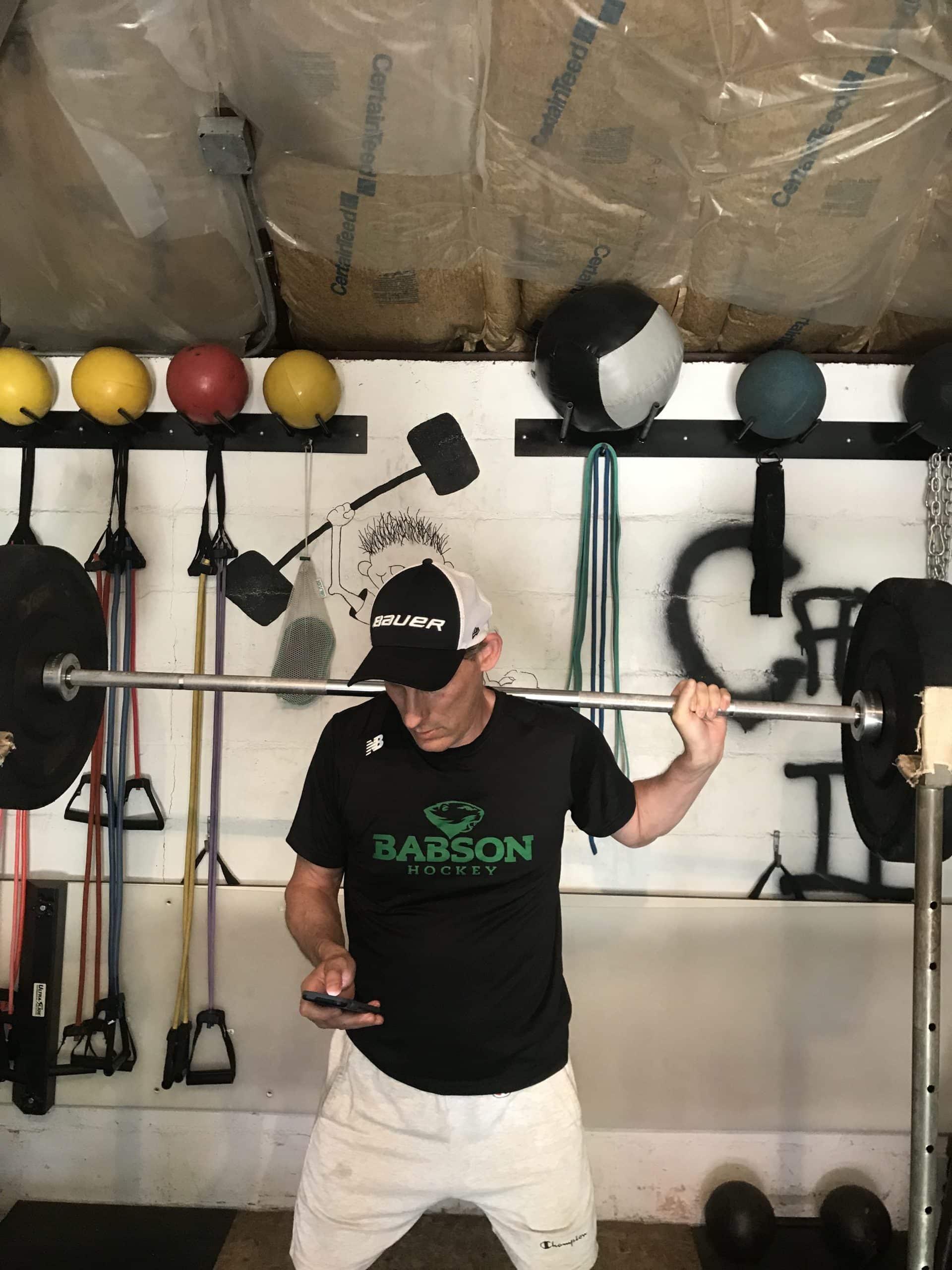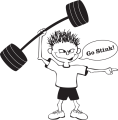Distracted exercise is dangerous

Originally published in South Coast Today.
We live in a culture that embraces and promotes the idea of multitasking. It may be symptomatic of a capitalistic ethos that preaches time is money or maybe we’re just naturally this manic. We’re overworked, overscheduled, and strapped for leisure time. And our stopgap solution to this eternal struggle is to juggle more balls in the air rather than to stop and smell the roses. It is truly awful that people on vacation should have to deal with work emails. And when life itself isn’t infringing on our personal time, we seem to have our own self-imposed diversions and interruptions.
Like so many other parts of our lives, this behavior has unfortunately crept its way into the exercise arena. Many people take phone calls during workout time.
Stopping what you’re doing in the middle of a workout for shoptalk or even worse, idle chitchat, is not exactly a recipe for success. I can understand a parent making sure that their kid got home safely, or news about a relative coming out of surgery; but more often than not, it’s Snapchat and bitcoin price indexes.
And for those gifted people who are on their smartphones during a work bout without stalling or suspending the exercise task at hand — not so fast!
Studies have shown that distracted exercise burns fewer calories on average. When reading a newspaper on a stationary bike and watching television on a treadmill, most people tend to not work as hard. Being inattentive toward the exercise that you’re engaged in and being unfocused about the physical undertaking dilutes your work input and ultimately your results.
Multitasking sounds great, but it undermines performance and instead of doing one thing well, we do two things below par. The worst thing about this multitasking approach to exercise is that we’ve become very disconnected from our bodies.
When we play tennis and go skiing, we concentrate on the activity in which we’re participating. When we read and watch TV during exercise, we’re trying to pass the time and trick ourselves into ignoring something that we really don’t want to be doing.
A good old-fashioned bike ride requires balance, awareness of one’s surroundings, and reaction time. You feel temperature changes, notice different smells, have to avoid potholes, and so forth. Losing control of the bike could cost you dearly. It’s pretty hard to lose control of a stationary bike, and removing coordination from the equation has transformed it into something that doesn’t require close attention. Instead of thinking about body positions, and breathing, and what our muscles feel like and what they’re doing, we just go through the motions.
At its best, exercise draws on a strong sense of mind-body connection. When exercise becomes mindless busywork, it breeds a certain level of detachment, and we become less in tune with our bodies.
So-called progress has turned most of us into a bunch of softies. We modern-day Americans have much less physically strenuous average workdays and daily lives than our not so distant predecessors, our ancestors. The result of all of this is that we don’t have to move very much. From this strange development came the creation of modern day exercise, which is largely predicated on simulated work. We used to walk to reach a destination; we used to lift to move objects to their designated place; and we used to perform work to accomplish the necessary task.
Now we ride bikes that don’t move and walk around in circles.
Rowing machines, treadmills, and their fellow sidekicks can be very useful tools. Of course you can get a great workout on this kind of stuff! But when this kind of stuff feels like unpleasant scut work that you’re trying to tune out, it’s time to rethink your methods. Holding your nose and tolerating an objectionable chore on a semi-regular basis is hardly a good game plan.
My coach used to say if you don’t have time to train right, you don’t have time to train. There is much wisdom in that philosophy, but I have to admit that, barring injury and such, bad exercise is better than no exercise.
Exercise can be so much more than a means to an end; it can be a passion, a hobby, and an inviting use of time. Rather than doing something you hate and trying to offset it with something acceptable, find something that doesn’t require any sweetening of the pot. It may be stereotyped exercise or it may be a pleasurable pastime that doubles as exercise.
Play basketball, lift weights, collect shells along the seashore, go apple picking with your family; as long as you’re moving around enough, it all counts.

Norm Meltzer aka The Muscle-less Wonder
